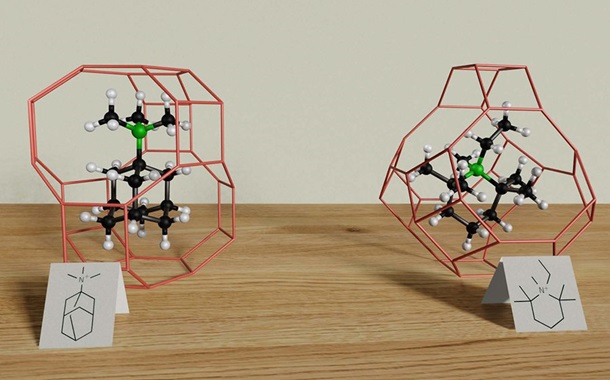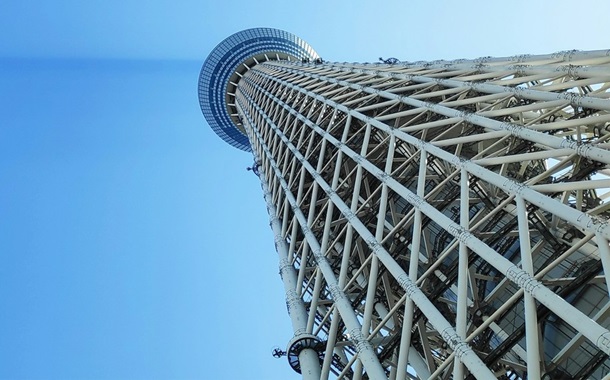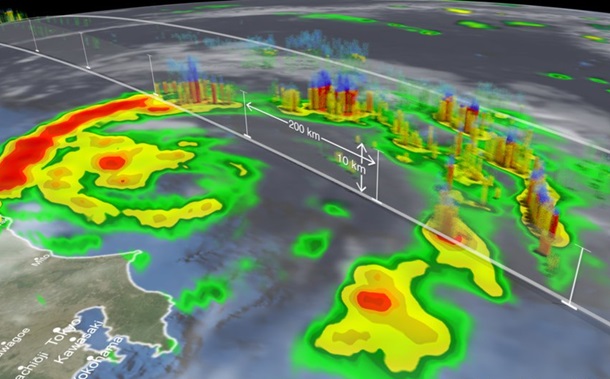Descriptive Statistical Analysis of the Coach-Player Relationship with CART-Q and SCI
Downloads
Doi:10.28991/HIJ-2023-04-02-01
Full Text:PDF
Downloads
Becker, A. J. (2009). It's Not What They Do, It's How They Do It: Athlete Experiences of Great Coaching. International Journal of Sports Science & Coaching, 4(1), 93–119. doi:10.1260/1747-9541.4.1.93.
Jowett, S., & Poczwardowski, A. (2020). Understanding the Coach-Athlete Relationship. Social Psychology in Sport, 6, 3–14, Bloomsbury Publishing, London, United Kingdom. doi:10.5040/9781492595878.ch-001.
Kidman, L., & Hanrahan, S. J. (2020). Successful Coaching. The Coaching Process, Routledge, Milton Park, United Kingdom. doi:10.4324/9780203857427-10.
Amorose, A. J., & Anderson-Butcher, D. (2007). Autonomy-supportive coaching and self-determined motivation in high school and college athletes: A test of self-determination theory. Psychology of Sport and Exercise, 8(5), 654–670. doi:10.1016/j.psychsport.2006.11.003.
Chelladurai, P. (2007). Leadership in Sports. Handbook of Sport Psychology, 111–135, John Wiley & Sons, Hoboken, United States. doi:10.1002/9781118270011.ch5.
Duda, J. L., & Balaguer, I. (2007). Coach-Created Motivational Climate. Social Psychology in Sport, 117–130, Bloomsbury Publishing, London, United Kingdom. doi:10.5040/9781492595878.ch-009.
Horn, T. S. (2008). Coaching effectiveness in the sport domain. Advances in sport psychology. Human Kinetics, North Yorkshire, United Kingdom.
Cranmer, G. A., & Brann, M. (2015). It Makes Me Feel Like I Am an Important Part of This Team: An Exploratory Study of Coach Confirmation. International Journal of Sport Communication, 8(2), 193–211. doi:10.1123/ijsc.2014-0078.
Isoard-Gautheur, S., Guillet-Descas, E., & Lemyre, P. N. (2012). A prospective study of the influence of perceived coaching style on burnout propensity in high level young athletes: Using a self-determination theory perspective. Sport Psychologist, 26(2), 282–298. doi:10.1123/tsp.26.2.282.
Chelladurai, P., & Carron, A. V. (1983). Athletic Maturity and Preferred Leadership. Journal of Sport Psychology, 5(4), 371–380. doi:10.1123/jsp.5.4.371.
Szedlak, C., Smith, M. J., Day, M. C., & Greenlees, I. A. (2015). Effective behaviours of strength and conditioning coaches as perceived by athletes. International Journal of Sports Science and Coaching, 10(5), 967–984. doi:10.1260/1747-9541.10.5.967.
Gagné, M., Ryan, R. M., & Bargmann, K. (2003). Autonomy Support and Need Satisfaction in the Motivation and Well-Being of Gymnasts. Journal of Applied Sport Psychology, 15(4), 372–390. doi:10.1080/714044203.
Smith, N., Tessier, D., Tzioumakis, Y., Fabra, P., Quested, E., Appleton, P., Sarrazin, P., Papaioannou, A., Balaguer, I., & Duda, J. L. (2016). The relationship between observed and perceived assessments of the coach-created motivational environment and links to athlete motivation. Psychology of Sport and Exercise, 23, 51–63. doi:10.1016/j.psychsport.2015.11.001.
Keller, M., Schweizer, J., & Gerber, M. (2023). Pay attention! The influence of coach-, content-, and player-related factors on focus of attention statements during tennis training. European Journal of Sport Science, 23(6), 1001–1009. doi:10.1080/17461391.2022.2056082.
Turner, M., Beranek, P., Lo, J., Ferrauti, A., Dunican, I. C., & Cruickshank, T. (2022). Does time of day and player chronotype impact tennis-specific skills and physical performance? International Journal of Sports Science & Coaching. doi:10.1177/17479541221136023.
Minኙová, K. (2022). The influence of the relationship between elite athletes and coaches on sports confidence, self-esteem and well-being in table tennis players. Masaryk university, Master Thesis, Brno, Czech Republic. (In Czech).
Pattanasing, K., Aujirapongpan, S., Dowpiset, K., Chanthawong, A., Jiraphanumes, K., & Hareebin, Y. (2022). Dynamic Knowledge Management Capabilities: An Approach to High-Performance Organization. HighTech and Innovation Journal, 3(3), 243-251. doi:10.28991/HIJ-2022-03-03-01.
Felton, L., & Jowett, S. (2013). "What do coaches do” and "how do they relate”: Their effects on athletes' psychological needs and functioning. Scandinavian Journal of Medicine & Science in Sports, 23(2), 130– 139. doi:10.1111/sms.12029.
Sánchez, J. M., Borrás, P. J., Leite, N., Battaglia, O., & Lorenzo, A. (2009). The coach-athlete relationship in basketball. Analysis of the antecedents, components and outcomes. Revista de psicología del deporte, 18(3), 349-352.
Yukelson, D., & Weinberg, R. (2016). Team resiliency in sport: Research to practice. Routledge international handbook of sport psychology. Routledge, Milton Park, United Kingdom.
Jowett, S. (2017). Coaching effectiveness: the coach–athlete relationship at its heart. Current Opinion in Psychology, 16, 154–158. doi:10.1016/j.copsyc.2017.05.006.
Jowett, S., & Carpenter, P. (2015). The concept of rules in the coach-athlete relationship. Sports Coaching Review, 4(1), 1–23. doi:10.1080/21640629.2015.1106145.
LaVoi, N. M. (2007). Expanding the Interpersonal Dimension: Closeness in the Coach-Athlete Relationship. International Journal of Sports Science & Coaching, 2(4), 497–512. doi:10.1260/174795407783359696.
Martinent, G. (2020). A Literature Review on Coach-Athlete Relationship in Table Tennis. International Journal of Racket Sports Science. doi:10.30827/digibug.63717.
Cece, V., Guillet-Descas, E., Nicaise, V., Lienhart, N., & Martinent, G. (2019). Longitudinal trajectories of emotions among young athletes involving in intense training centres: Do emotional intelligence and emotional regulation matter? Psychology of Sport and Exercise, 43, 128–136. doi:10.1016/j.psychsport.2019.01.011.
Tolentino, K. A. G. (2020). Bonds that build us: Examining the impact of the coach-athlete relationship on mental toughness development. Master Thesis, California State University, Long Beach, United States.
Miller, P. S., Salmela, J. H., & Kerr, G. (2002). Coaches' perceived role in mentoring athletes. International journal of sport psychology, 33(4), 410-430.
Jowett, S., & Nezlek, J. (2012). Relationship interdependence and satisfaction with important outcomes in coach-athlete dyads. Journal of Social and Personal Relationships, 29(3), 287–301. doi:10.1177/0265407511420980.
Yang, S. X., & Jowett, S. (2012). Psychometric properties of the Coach-Athlete Relationship Questionnaire (CART-Q) in seven countries. Psychology of Sport and Exercise, 13(1), 36–43. doi:10.1016/j.psychsport.2011.07.010.
Jowett, S., & Ntoumanis, N. (2004). The Coach-Athlete Relationship Questionnaire (CART-Q): Development and initial validation. Scandinavian Journal of Medicine & Science in Sports, 14(4), 245–257. doi:10.1111/j.1600-0838.2003.00338.x.
Jowett, S., & Cramer, D. (2009). The role of romantic relationships on athletes' performance and well-being. Journal of Clinical Sport Psychology, 3(1), 58–72. doi:10.1123/jcsp.3.1.58.
Davis, L., Jowett, S., & Tafvelin, S. (2019). Communication Strategies: The Fuel for Quality Coach-Athlete Relationships and Athlete Satisfaction. Frontiers in Psychology, 10, 2156. doi:10.3389/fpsyg.2019.02156.
Gehrke, S., Niemz, S., Wenige, L., & Ruhland, J. (2022). Investigation of Senior IT Management Skills Using COBIT Enablers and Social Media Platform. Journal of Human, Earth, and Future, 3(1), 69-81. doi:10.28991/HEF-2022-03-01-05.
Hampson, R., & Jowett, S. (2014). Effects of coach leadership and coach-athlete relationship on collective efficacy. Scandinavian Journal of Medicine & Science in Sports, 24(2), 454–460. doi:10.1111/j.1600-0838.2012.01527.x.
Thelwell, R. C., Wagstaff, C. R. D., Rayner, A., Chapman, M., & Barker, J. (2017). Exploring athletes' perceptions of coach stress in elite sport environments. Journal of Sports Sciences, 35(1), 44–55. doi:10.1080/02640414.2016.1154979.
Wachsmuth, S., Jowett, S., & Harwood, C. G. (2018). On understanding the nature of interpersonal conflict between coaches and athletes. Journal of Sports Sciences, 36(17), 1955–1962. doi:10.1080/02640414.2018.1428882.
Lafrenière, M. A. K., Jowett, S., Vallerand, R. J., & Carbonneau, N. (2011). Passion for coaching and the quality of the coach-athlete relationship: The mediating role of coaching behaviors. Psychology of Sport and Exercise, 12(2), 144–152. doi:10.1016/j.psychsport.2010.08.002.
Michalos, A. C. (2014). Encyclopedia of Quality of Life and Well-Being Research, Springer, Dordrecht, Netherlands. hdoi:10.1007/978-94-007-0753-5.
Lochbaum, M., Stoner, E., Hefner, T., Cooper, S., Lane, A. M., & Terry, P. C. (2022). Sport psychology and performance meta-analyses: A systematic review of the literature. PLoS ONE, 17(2 February), 263408. doi:10.1371/journal.pone.0263408.
Philippe, A. R., & Seiler, R. (2006). Closeness, co-orientation and complementarity in coach-athlete relationships: What male swimmers say about their male coaches. Psychology of Sport and Exercise, 7(2), 159–171. doi:10.1016/j.psychsport.2005.08.004.
Rhind, D. J. A., & Jowett, S. (2011). Linking maintenance strategies to the quality of coach-athlete relationships. International Journal of Sport Psychology, 42(1), 55–68.
Rhind, D. J. A., & Jowett, S. (2010). Relationship maintenance strategies in the coach-athlete relationship: The development of the COMPASS model. Journal of Applied Sport Psychology, 22(1), 106–121. doi:10.1080/10413200903474472.
Cí´té, J., & Gilbert, W. (2009). An Integrative Definition of Coaching Effectiveness and Expertise. International Journal of Sports Science & Coaching, 4(3), 307–323. doi:10.1260/174795409789623892.
Davis, L., Appleby, R., Davis, P., Wetherell, M., & Gustafsson, H. (2018). The role of coach-athlete relationship quality in team sport athletes' psychophysiological exhaustion: implications for physical and cognitive performance. Journal of Sports Sciences, 36(17), 1985–1992. doi:10.1080/02640414.2018.1429176.
Vealey, R. S. (2016). Conceptualization of Sport-Confidence and Competitive Orientation: Preliminary Investigation and Instrument Development. Journal of Sport Psychology, 8(3), 221–246. doi:10.1123/jsp.8.3.221.
Bandura, A., Freeman, W. H., & Lightsey, R. (1999). Self-Efficacy: The Exercise of Control. Journal of Cognitive Psychotherapy, 13(2), 158–166. doi:10.1891/0889-8391.13.2.158.
Vealey, R. S., & Chase, M. A. (2008). Self-confidence in sport. Advances in sport psychology. Human Kinetics, North Yorkshire, United Kingdom.
Vealey, R. S., & Knight, B. J. (2002). Development of the multidimensional Sport-Confidence Inventory. Association for the Advancement of Applied Sport Psychology, Tucson, United States.
Reverdito, R. S., Fonseca, S., Lopes, A., Aires, K., Santos Alves, L., Alves de Lima, L., ... & Gonçalves, C. (2023). Sources of Sport Satisfaction and Perceived Self-Efficacy among Youth in a Competitive Environment. Perceptual and Motor Skills, 00315125231167460. doi:10.1177/00315125231167460.
Singer, R. N., Hausenblas, H. A., & Janelle, C. M. (2001). Handbook of sport psychology. John Wiley & Sons, Hoboken, United States.
Vealey, R. S., Garner-Holman, M., Hayashi, S. W., & Giacobbi, P. (1998). Sources of sport-confidence: Conceptualization and instrument development. Journal of Sport and Exercise Psychology, 20(1), 54–80. doi:10.1123/jsep.20.1.54.
Bandura, A., & Walters, R. H. (1977). Social learning theory. Prentice Hall, Englewood cliffs, United States.
Feltz, D. L., Short, S. E., & Sullivan, P. J. (2008). Self-Efficacy in Sport. Human Kinetics, North Yorkshire, United Kingdom. doi:10.5040/9781718206625.
Wilson, R. C., Sullivan, P. J., Myers, N. D., & Feltz, D. L. (2004). Sources of sport confidence of master athletes. Journal of Sport and Exercise Psychology, 26(3), 369–384. doi:10.1123/jsep.26.3.369.
Hays, K., Thomas, O., Butt, J., & Maynard, I. (2010). The development of confidence profiling for sport. Sport Psychologist, 24(3), 373–392. doi:10.1123/tsp.24.3.373.
Hays, K., Thomas, O., Maynard, I., & Bawden, M. (2009). The role of confidence in world-class sport performance. Journal of Sports Sciences, 27(11), 1185–1199. doi:10.1080/02640410903089798.
Lane, A. (2014). An examination of robust sport-confidence in elite sport. Sport & Exercise Psychology Review, 10(2), 24–27. doi:10.53841/bpssepr.2014.10.2.24.
Hatzigeorgiadis, A., Zourbanos, N., Mpoumpaki, S., & Theodorakis, Y. (2009). Mechanisms underlying the self-talk-performance relationship: The effects of motivational self-talk on self-confidence and anxiety. Psychology of Sport and Exercise, 10(1), 186–192. doi:10.1016/j.psychsport.2008.07.009.
Beaumont, C., Maynard, I. W., & Butt, J. (2015). Effective Ways to Develop and Maintain Robust Sport-Confidence: Strategies Advocated by Sport Psychology Consultants. Journal of Applied Sport Psychology, 27(3), 301–318. doi:10.1080/10413200.2014.996302.
Hayes, S. C. (2004). Acceptance and commitment therapy, relational frame theory, and the third wave of behavioral and cognitive therapies. Behavior Therapy, 35(4), 639–665. doi:10.1016/S0005-7894(04)80013-3.
Zizzi, S. J., & Andersen, M. B. (2017). Being mindful in sport and exercise psychology: Pathways for practitioners and students. FiT Publishing, Morgantown, United States.
Forman, E. M., Chapman, J. E., Herbert, J. D., Goetter, E. M., Yuen, E. K., & Moitra, E. (2012). Using Session-by-Session Measurement to Compare Mechanisms of Action for Acceptance and Commitment Therapy and Cognitive Therapy. Behavior Therapy, 43(2), 341–354. doi:10.1016/j.beth.2011.07.004.
Horne, E., Woolf, J., & Green, C. (2022). Relationship dynamics between parents and coaches: are they failing young athletes? Managing Sport and Leisure, 27(3), 224–240. doi:10.1080/23750472.2020.1779114.
Mouelhi-Guizani, S., Guinoubi, S., Teyeb, N., Chtara, M., & Crespo, M. (2022). Effect of practice hours on elite junior tennis players' burnout: Gender differences. International Journal of Sports Science & Coaching, 17(6), 1418–1427. doi:10.1177/17479541211064417.
Li, J., Gao, H., & Hu, J. (2021). Satisfaction and the coach–athlete relationship: The mediating role of trust. Social Behavior and Personality: An International Journal, 49(2), 1–11. doi:10.2224/sbp.9807.
Balduck, A. L., & Jowett, S. (2010). Psychometric properties of the Belgian coach version of the coach-athlete relationship questionnaire (CART-Q). Scandinavian Journal of Medicine and Science in Sports, 20(5), 779–786. doi:10.1111/j.1600-0838.2009.01020.x.
Balzadeh, A., Nikbakhsh, R., & Tojari, F. (2019). Psychometric Properties of the Persian Version of the Meta-Perspective (3+ 1Cs) Coach-Athlete Relationship Questionnaire (CART-Q). Sport Psychology Studies, 8(28), 51-68.
Ryckman, R. M., Robbins, M. A., Thornton, B., & Cantrell, P. (1982). Development and validation of a physical self-efficacy scale. Journal of Personality and Social Psychology, 42(5), 891–900. doi:10.1037/0022-3514.42.5.891.
Harter, S. (1982). The Perceived Competence Scale for Children. Child Development, 53(1), 87. doi:10.2307/1129640.
Martens, R., Burton, D., Vealey, R. S., Bump, L., & Smith, D. E. (1983). Competitive State Anxiety Inventory”2. PsycTESTS Dataset. doi:10.1037/t27557-000.
Bandura, A. (1984). Recycling misconceptions of perceived self-efficacy. Cognitive Therapy and Research, 8(3), 231–255. doi:10.1007/BF01172995.
Gould, D., Petlichkoff, L., & Weinberg, R. S. (2016). Antecedents Of, Temporal Changes In, and Relationships between CSAI-2 Subcomponents. Journal of Sport Psychology, 6(3), 289–304. doi:10.1123/jsp.6.3.289.
McAuley, E. (1985). Modeling and self-efficacy: A test of Bandura's model. Journal of Sport and Exercise Psychology, 7(3), 283-295. doi:10.1123/jsp.7.3.283.
Gould, D., Petlichkoff, L., Simons, J., & Vevera, M. (1987). Relationship between Competitive State Anxiety Inventory-2 Subscale Scores and Pistol Shooting Performance. Journal of Sport Psychology, 9(1), 33–42. doi:10.1123/jsp.9.1.33.
Bandura, A. (1986). Fearful expectations and avoidant actions as coeffects of perceived self-inefficacy. American Psychologist, 41(12), 1389–1391. doi:10.1037/0003-066x.41.12.1389.
Manzo, L. G., Silva, J. M., & Mink, R. (2001). The Carolina Sport Confidence Inventory. Journal of Applied Sport Psychology, 13(3), 260–274. doi:10.1080/104132001753144400.
Machida, M., Otten, M., Magyar, T. M., Vealey, R. S., & Ward, R. M. (2017). Examining multidimensional sport-confidence in athletes and non-athlete sport performers. Journal of Sports Sciences, 35(5), 410–418. doi:10.1080/02640414.2016.1167934.
Manzo, L. G., Mondin, G. W., Clark, B., & Schneider, T. (2005). Confidence: Applying Sport Psychology Four Perspectives Champaign, Human Kinetics, North Yorkshire, United Kingdom.
Vealey, R. S., Knight, B. J., & Pappas, G. (2002). Self-confidence in sport: Conceptual and psychological advancement. In annual convention of the Association for the Advancement of Applied Sport Psychology, Tucson, United States.
Fogarty, G. J., Perera, H. N., Furst, A. J., & Thomas, P. R. (2016). Evaluating Measures of Optimism and Sport Confidence. Measurement in Physical Education and Exercise Science, 20(2), 81–92. doi:10.1080/1091367X.2015.1111220.
Berry, J. W. (2003). Origin of cross-cultural similarities and differences in human behavior: An ecocultural perspective. Cultural guidance in the development of the human mind, 97-109, ABC-CLIO, Santa Barbara, United States.
Berscheid, E. (1995). Help wanted: A grand theorist of interpersonal relationships, sociologist or anthropologist preferred. Journal of Social and Personal Relationships, 12(4), 529–533. doi:10.1177/0265407595124005.
Hays, K., Maynard, I., Thomas, O., & Bawden, M. (2007). Sources and types of confidence identified by world class sport performers. Journal of Applied Sport Psychology, 19(4), 434–456. doi:10.1080/10413200701599173.
Guinoubi, S., Mouelhi-Guizani, S., Chtara, M., & Crespo, M. (2022). Competence Needs Satisfaction in elite junior tennis: Gender differences. International Journal of Sports Science and Coaching, 17479541221128936. doi:10.1177/17479541221128936.
Taylor, B., & Garratt, D. (2008). Professionalisation in sports coaching: issues and conceptualisation. Manchester Metropolitan University, Manchester, England.
Jones, E., Edwards, L., Dohme, L. C., & Norman, L. (2023). ‘I'm not prepared to sacrifice my life for other people's tennis': An explorative study into the career narratives of female tennis coaches. International Journal of Sports Science and Coaching, 18(2), 339–349. doi:10.1177/17479541221133299.
Steele, J., Fisher, J., McKinnon, S., & McKinnon, P. (2016). Differentiation between perceived effort and discomfort during resistance training in older adults: Reliability of trainee ratings of effort and discomfort, and reliability and validity of trainer ratings of trainee effort. Journal of Trainology, 6(1), 1–8. doi:10.17338/trainology.6.1_1.
Bull, S. J., Shambrook, C. J., James, W., & Brooks, J. E. (2005). Towards an understanding of mental toughness in elite English cricketers. Journal of Applied Sport Psychology, 17(3), 209–227. doi:10.1080/10413200591010085.
Bozkurt, O., Koruç, Z., Arslan, N., & kocaekşi, S. (2012). A Comparison of Football Players'sport Confidence and Self-Efficacy Beliefs According to Their League Level in Turkey. Beden Eğitimi ve Spor Bilimleri Dergisi, 6(3), 349-356.
Fan, F., Chen, J., Chen, Y., Li, B., Guo, L., Shi, Y., ... & Shi, H. (2023). How relationship-maintenance strategies influence athlete burnout: Mediating roles of coach–athlete relationship and basic psychological needs satisfaction. Frontiers in Psychology, 13, 1104143. doi:10.3389/fpsyg.2022.1104143.
Sagar, S. S., Busch, B. K., & Jowett, S. (2010). Success and failure, fear of failure, and coping responses of adolescent academy football players. Journal of Applied Sport Psychology, 22(2), 213–230. doi:10.1080/10413201003664962.
Liu, Y., Wang, Z., Zhou, C., & Li, T. (2014). Affect and self-esteem as mediators between trait resilience and psychological adjustment. Personality and Individual Differences, 66, 92–97. doi:10.1016/j.paid.2014.03.023.
Lundqvist, C., & Kenttä, G. (2010). Positive emotions are not simply the absence of the negative ones: Development and validation of the emotional recovery questionnaire (EmRecQ). Sport Psychologist, 24(4), 468–488. doi:10.1123/tsp.24.4.468.
Donohue, B., Gavrilova, Y., Galante, M., Gavrilova, E., Loughran, T., Scott, J., Chow, G., Plant, C. P., & Allen, D. N. (2018). Controlled evaluation of an optimization approach to mental health and sport performance. Journal of Clinical Sport Psychology, 12(2), 234–267. doi:10.1123/jcsp.2017-0054.
Gencer, E. (2021). The Relationship between Self-Esteem, Satisfaction with Life and Coach-Athlete Relationship. Journal of Educational Issues, 6(2), 493. doi:10.5296/jei.v6i2.18028.
Coatsworth, J. D., & Conroy, D. E. (2009). The Effects of Autonomy-Supportive Coaching, Need Satisfaction, and Self-Perceptions on Initiative and Identity in Youth Swimmers. Developmental Psychology, 45(2), 320–328. doi:10.1037/a0014027.
Simons, E. E., & Bird, M. D. (2022). Coach-athlete relationship, social support, and sport-related psychological well-being in National Collegiate Athletic Association Division I student-athletes. Journal for the Study of Sports and Athletes in Education, 1–20. doi:10.1080/19357397.2022.2060703.
Monteiro, R. P., Coelho, G. L. de H., Hanel, P. H. P., de Medeiros, E. D., & da Silva, P. D. G. (2022). The Efficient Assessment of Self-Esteem: Proposing the Brief Rosenberg Self-Esteem Scale. Applied Research in Quality of Life, 17(2), 931–947. doi:10.1007/s11482-021-09936-4.
Cheng, H., & Furnham, A. (2003). Attributional style and self-esteem as predictors of psychological well-being. Counselling Psychology Quarterly, 16(2), 121–130. doi:10.1080/0951507031000151516.
Diener, E. (2009). The science of well-being: The collected works of Ed Diener. Springer, New York, United States. doi:10.1007/978-90-481-2350-6.
MacKinnon, V. (2011). Techniques for Instructing Female Athletes in Traditionally Male Sports: A Case Study of LPGA Teaching Professionals. The International Journal of Sport and Society, 2(1), 75–88. doi:10.18848/2152-7857/cgp/v02i01/54060.
Anderson, E., Stone, J. A., Dunn, M., & Heller, B. (2021). Coach approaches to practice design in performance tennis. International Journal of Sports Science and Coaching, 16(6), 1281–1292. doi:10.1177/17479541211027294.
Wang, L. (2023). How self-reflection and resilience can affect pre-competition anxiety? Evidence from national competitive table tennis in adolescent players. Current Psychology, 42(14), 12034-12044. doi:10.1007/s12144-021-02473-1.
Chun, D. R., Lee, M. Y., Kim, S. W., Cho, E. Y., & Lee, B. H. (2023). The Mediated Effect of Sports Confidence on Competitive State Anxiety and Perceived Performance of Basketball Game. International Journal of Environmental Research and Public Health, 20(1), 334. doi:10.3390/ijerph20010334.
Lee, S., Kwon, S., Kim, Y. S., & Lee, D. (2021). The effect of adolescent athletes' achievement goal orientation and perception of error on their sport-confidence. International Journal of Sports Science & Coaching, 16(3), 646–657. doi:10.1177/1747954120976248.
Martínez-Gallego, R., Villafaina, S., Crespo, M., & Fuentes-García, J. P. (2022). Gender and Age Influence in Pre-Competitive and Post-Competitive Anxiety in Young Tennis Players. Sustainability (Switzerland), 14(9), 4966. doi:10.3390/su14094966.
Sargent Megicks, B., Till, K., Rongen, F., Cowburn, I., Gledhill, A., Mitchell, T., Emmonds, S., & Lara-Bercial, S. (2022). Examining European Talent Development Environments: Athlete, Parent and Coach Perceptions. Journal of Sports Sciences, 40(22), 2533–2543. doi:10.1080/02640414.2023.2172800.
Paul, D., Read, P., Farooq, A., & Jones, L. (2021). Factors Influencing the Association between Coach and Athlete Rating of Exertion: a Systematic Review and Meta-analysis. Sports Medicine - Open, 7(1), 1–20. doi:10.1186/s40798-020-00287-2.
Irvin, Z. (2021). Interpersonal coaching styles and attachment status in athletes: The relationship between the athlete and the coach as an attachment figure. Ph.D. Thesis, University of Michigan- Dearborn, Dearborn, United States. doi:10.7302/219.
Cohn, P. (2006). Self-esteem in the athlete. Brian Mackenzie's Successful Coaching, 9–10.
Fuentes-García, J. P., Villafaina, S., Martínez-Gallego, R., & Crespo, M. (2022). Pre- and post-competitive anxiety and match outcome in elite international junior tennis players. International Journal of Sports Science and Coaching, 17479541221122396. doi:10.1177/17479541221122396.
- This work (including HTML and PDF Files) is licensed under a Creative Commons Attribution 4.0 International License.





















